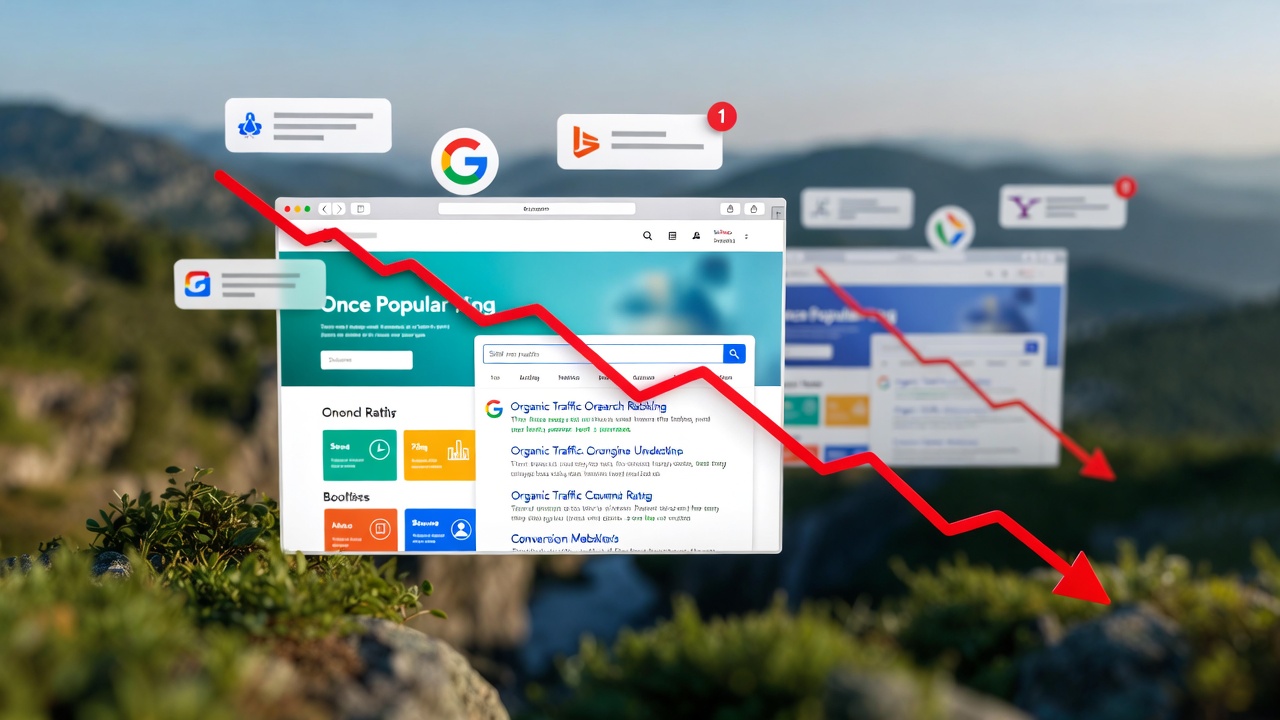In today’s digital world, a strong SEO strategy is essential for business success. It enhances search engine visibility, drives organic search traffic, and ultimately boosts conversions. With more consumers relying on search engines (Google, Bing) to find products and services, businesses that ignore SEO risk falling behind. Understanding the role of SEO in business growth helps companies establish authority, increase customer engagement, and maintain a competitive edge.
Understanding SEO and Its Key Components
SEO is more than just ranking on Google; it’s about creating a seamless experience for users while ensuring your content aligns with search intent. A well-optimized website attracts the right audience through:
- Keyword research: Identifying terms your target audience searches for.
- Quality content: Providing informative, engaging, and relevant material.
- Content strategy: Structuring and planning content to meet user needs.
- Search engine visibility: Enhancing exposure in search results.
- SEO audit: Regularly evaluating website performance to identify areas for improvement.
By focusing on these elements, businesses can improve traffic generation and build long-term trust with potential customers.
SEO and Business Growth
A well-implemented SEO strategy directly contributes to business growth by:
- Driving Conversions – Optimized content and a smooth user experience (UX) help turn visitors into paying customers. When users find relevant information quickly, they are more likely to engage and complete actions such as signing up for a service or making a purchase.
- Improving Website Performance – Factors like page speed, mobile optimization, and technical SEO ensure a faster, smoother browsing experience. A slow or unresponsive website discourages users and increases bounce rates, directly impacting sales and customer retention.
- Increasing User Engagement – A well-structured website keeps visitors engaged, reducing bounce rates and increasing the chances of conversion. Engaging content, easy navigation, and interactive elements encourage users to explore further.
- Strengthening Brand Credibility – Appearing at the top of SERP rankings establishes trust and brand authority. Users tend to trust websites that rank higher, assuming they provide better value and reliable information.
- Enhancing Competitive Advantage – Businesses with strong SEO outperform competitors who rely solely on paid advertising. While PPC campaigns provide immediate traffic, SEO ensures long-term visibility and cost-effective lead generation. Companies investing in SEO are more likely to sustain growth and adapt to changing search engine algorithms.
- Building Long-Term Revenue Streams – Unlike paid ads, SEO efforts compound over time. Consistently ranking for high-value keywords means sustained organic search traffic, leading to continuous lead generation and sales without ongoing advertising costs.
Key SEO Techniques for Success
To maximize the benefits of SEO, businesses must focus on three core areas:
1. On-Page SEO
This involves optimizing individual pages for better rankings and user experience. Key tactics include:
- Writing compelling title tags and meta descriptions.
- Using relevant keywords strategically.
- Enhancing content readability and structure.
- Using internal linking to help with search engine visibility.
2. Off-Page SEO
This refers to external factors that influence your site’s ranking, such as:
- Building high-quality backlinks from authoritative sites.
- Social media engagement and brand mentions.
- Establishing partnerships with industry influencers.
- Managing online reputation and customer reviews as trust signals.
3. Technical SEO
Ensuring your website is technically sound improves crawlability and indexing. Focus areas include:
- Mobile optimization for better accessibility.
- Enhancing website performance and page speed.
- Implementing structured data for better search visibility.
- Ensuring fast-loading, secure pages with HTTPS.
SEO Tools and Best Practices
To maintain a competitive edge, businesses must utilize search engine optimization tools such as Google Analytics, SEMrush, and Ahrefs. Regular SEO audits help identify areas for improvement and keep up with evolving SEO algorithms. Best practices include:
- Updating content regularly to keep it fresh and relevant.
- Monitoring website analytics to track performance.
- Adapting to algorithm changes by staying informed on SEO trends.
- Ensuring mobile-first indexing compatibility.
The Role of Trust and Search Engines
Search engines prioritize websites that demonstrate trust signals, such as positive user reviews, secure connections (HTTPS), and high engagement rates. Building trust through transparency, credibility, and user-focused content ensures long-term SEO success. Additionally, backlinks from reputable sites strengthen domain authority and improve search engine visibility.
Why Ignoring SEO is a Risk
Neglecting SEO can have significant consequences for businesses, including:
- Lower Visibility in Search Results – Without proper search engine optimization, businesses struggle to appear in SERP rankings, reducing organic search traffic. This can make it harder for potential customers to find your products or services.
- Higher Dependence on Paid Advertising – Companies that ignore SEO often rely on expensive PPC campaigns to generate traffic. While PPC can be effective, it requires constant spending, unlike SEO, which builds sustainable traffic over time.
- Poor User Experience (UX) – A lack of SEO focus can lead to slow website speeds, poor mobile responsiveness, and confusing navigation. A bad user experience drives visitors away, leading to lost sales and engagement opportunities.
- Loss of Credibility and Authority – Businesses that do not rank well on search engines often struggle to gain credibility. Users tend to trust sites on the first page of Google, assuming they provide the best answers to their queries.
- Missed Growth Opportunities – Without a structured SEO strategy, businesses fail to capitalize on high-intent search queries that could drive sales and leads. As competitors continue optimizing their websites, an unoptimized business website will fall further behind.
- Limited Data Insights – SEO tools provide valuable data on user behavior, keyword performance, and content effectiveness. Ignoring SEO means missing out on actionable insights that can guide marketing decisions and improve business strategies.
- Difficulty Adapting to Market Changes – Search engines continuously update their algorithms to improve user experience and search accuracy. Businesses that neglect SEO often struggle to keep up with these changes, leading to declining rankings and reduced online visibility.
Bottom Line
SEO is an invaluable tool for business growth, enhancing search engine visibility, boosting traffic generation, and improving user engagement. By investing in on-page SEO, off-page SEO, and technical SEO, businesses can stay ahead of competitors and build long-term success. Now is the time to develop a strong SEO strategy and reap the benefits of increased online visibility. Ignoring SEO is no longer an option in today’s digital world—embrace it and watch your business thrive.



